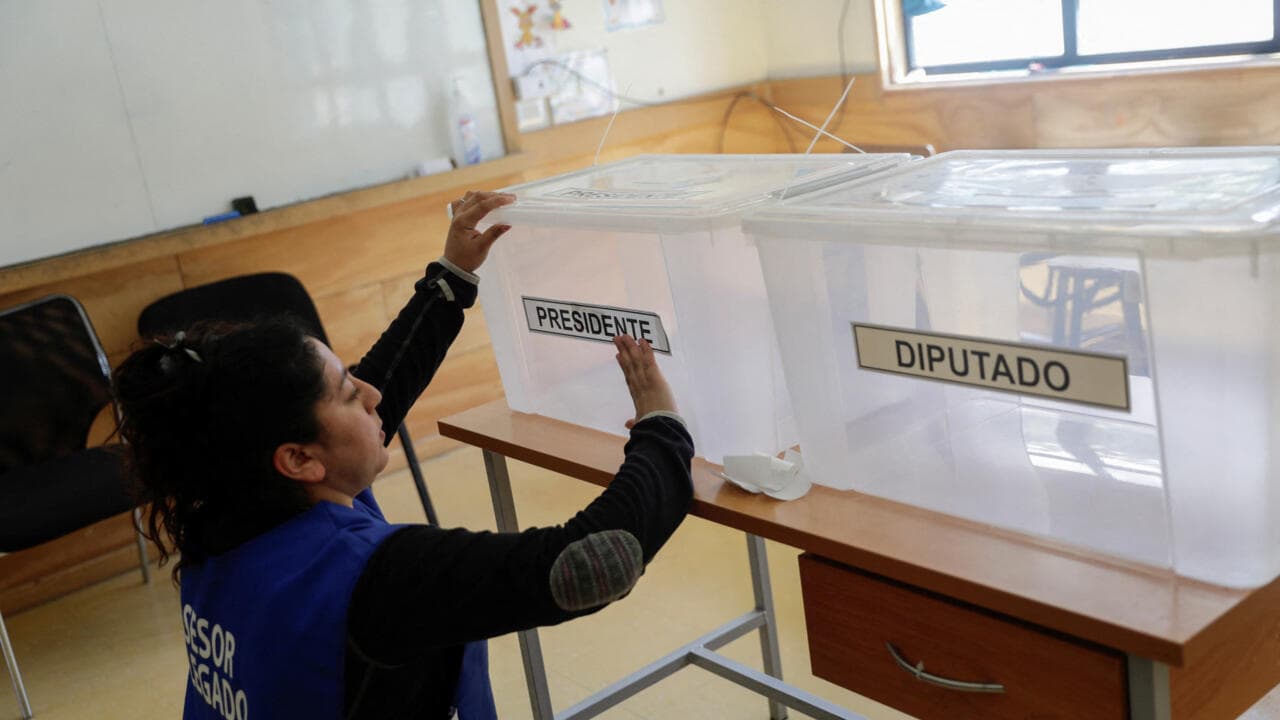Chileans go to the polls Sunday in presidential and parliamentary elections dominated by rising crime and immigration. Far-right candidate Jose Antonio Kast, who has threatened Donald Trump-style mass deportations, is predicted to trail in the first round of voting Sunday before likely emerging victorious in the December run-off.
A sharp increase in murders, kidnappings and extortion over the past decade has damaged Chile's reputation as of Latin America's safest nations.
Outgoing centre-left President Gabriel Boric, who is barred from seeking a second consecutive term, has made some strides in fighting crime.
Under his watch, the murder rate has fallen 10 percent since 2022 to 6 per 100,000 people, slightly above that of the United States.
Polls show the main left-wing candidate, Jeannette Jara, a 51-year-old communist and former labour minister running on behalf of a broad coalition, winning Sunday's first round of voting.
But Kast is tipped to surge to first place in December's run-off.
Results are expected within two hours of polls closing at 4:00 pm (1900 GMT).
"We need someone who shows an iron fist," Jacqueline Ruz, a 56-year-old Kast supporter, told AFP at his final rally this week in Santiago.
"Third time lucky!" Kast, the ultraconservative candidate and father of nine who first ran for president in 2017 and was runner-up in 2021, assured the crowd.
Building walls
Despite the recent decline in the murder rate, Chileans remain transfixed by the growing violence of criminals, which they blame on the arrival of gangs from Venezuela and other Latin American countries.
Kast, whose father was a German soldier in Hitler's Nazi army, has vowed to end illegal migration by building walls, fences and trenches along Chile's desert border with Bolivia, the main crossing point for arrivals from poorer countries to the north.
Ahead of the election, he issued 337,000 undocumented migrants with an ultimatum to sell up and self-deport, or be thrown out and lose everything if he wins power.
Former YouTube polemicist Johannes Kaiser, who has outflanked Kast on the right, was closing in on the poll leaders in the final days of campaigning.
The 49-year-old libertarian MP, who has been compared to Argentina's Javier Milei for his plans to radically downsize the state, campaigned as an outsider who shoots from the hip on crime, communism and family values.
Faced with a race to the right, conservative ex-minister Evelyn Matthei, 72, struggled to make her mark.
A surge of new voters
The country recently reintroduced mandatory voting after ending the practice in 2012. Voter registration is now automatic, so the millions of people who never bothered to register, even when voting was compulsory, will be casting their first ballots in a presidential race. Those who fail to do so face fines up to $100.
Analysts are divided over the potential effects.
“It’s a huge question,” said Robert Funk, an associate professor of political science at the University of Chile. “We have 4 million new voters. Who are they? Are they young people who like Jara? Are they people from marginal neighborhoods attracted to Kast's hard-line stance on crime?”
The country has 15.7 million eligible voters, of whom over 800,000 are immigrants with residency of five years or more and are exempt from mandatory voting. Polls show that foreigners overwhelmingly favour the right – especially Venezuelans who fled authoritarian socialist Nicolas Maduro's government.
But some immigrants have qualms this time about supporting a candidate who vows to round up and deport their compatriots.
“I would vote for Kast, but it hurts to hear speeches like that,” said Juan Pablo Sanchez, a delivery app worker who migrated from Venezuela six years ago. “I don't know what to do.”
Bellwether for the left
The vote is seen as a litmus test for the future of South America's varied left, which has suffered defeats in Argentina and Bolivia and faces a stiff challenge in Colombian and Brazilian elections next year.
Guillaume Long, a senior fellow at the US Center for Economic Policy and Research, said a win for the far right"would have a big impact on Latin American politics".
"I think you would see Chile playing a very aggressive role internationally, probably in close alliance with both Milei and Trump," he told AFP.
Jara faces an uphill battle to overcome strong anti-communist sentiment and disappointment in the outgoing Boric administration.
Former student leader Boric defeated Kast in 2021 on a promise to establish a welfare state after mass demonstrations in 2019 over inequality.
But his presidency was fatally weakened after voters massively rejected a progressive new constitution months after his inauguration.
Pinochet's shadow
Kast would be the first far-right leader since the 1973-1990 military dictatorship of Augusto Pinochet if elected.
The ultraconservative has repeatedly defended Pinochet, who toppled a democratically elected socialist president in 1973 and oversaw a regime that killed thousands of dissidents.
Jara, 51, is the only working-class candidate among the frontrunners.
She joined the Communist Party at the age of 14 but has campaigned as a moderate with a track record of reforms, including reducing the working week from 45 hours to 40 and raising the minimum wage.
She has pledged to ensure that"every Chilean family can easily make it to the end of the month".
"Bread is very expensive, sugar is expensive, tea is expensive, fruit is expensive. So we have to vote for her!" said 76-year-old Mireya Ortiz, who cleans offices to supplement her meagre pension.
Voting is compulsory for the first time since 2012, adding nearly 5 million people to the electorate.
Besides choosing a new president, voters will also elect members to the Chamber of Deputies and half of the Senate.

